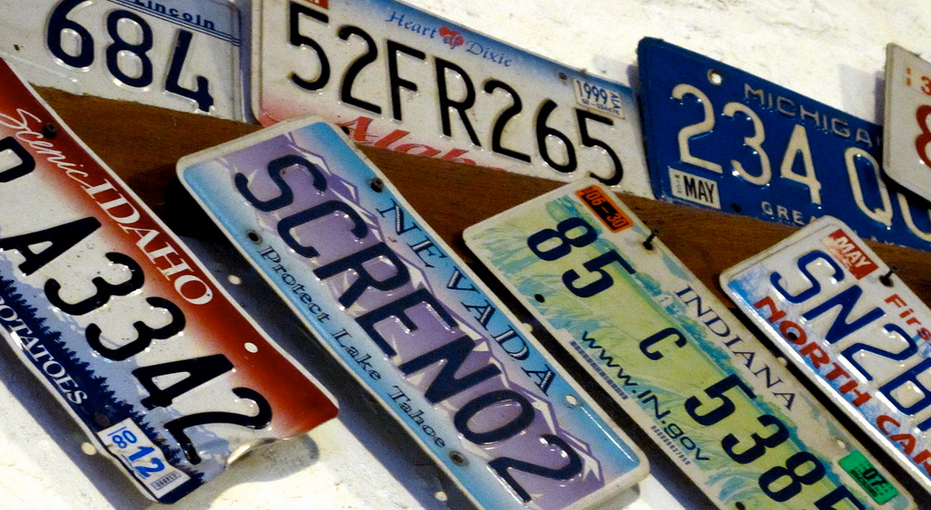Private Companies Building Giant Unregulated Databases Tracking License Plate Location Info
Do you know everywhere your car has been in the past week? Month? Year? You may or may not remember it all, but there’s a good chance that your license plate has had its photo snapped, and its location recorded, a whole bunch of times in that period. And anyone who can pony up the cash for a subscription to that database can tell exactly where you’ve been.
Private license-plate tracking companies are a $500 million business, as the Los Angeles Times reports, and getting bigger every day.
According to the LA Times, as of 2012 — the most recent available data — over 70% of police departments in the country were using license plate scanning technology. In 2010, it was half that. Police not only have their own scanners, but also pay for access to the database of privately-generated scans.
It’s a tricky sort of public-private arrangement. A private company puts plate cameras and tech on repossession workers’ cars, and those repo agents then drive around the country scanning everyone’s plates, as we’ve covered before. The resulting database has more than two billion scans in it, a number that’s increasing every day.
It’s that aggregation of data that makes the plate-scanning scary. An individual snapshot — “Virginia plate 123456 was at Safeway on 12:19 p.m. this Thursday” — tells you nothing, unless you’re specifically looking for that car. But a series of snapshots, showing you where VA plate 123456 was on nearly every weekday morning and evening for the last three months… that’s a big pile of information about one person’s movements and associations.
Granted, information about the car isn’t necessarily useful if you can’t connect the license plate to an owner. And federal law does prevent state DMVs from just giving out registration information to anyone and everyone who asks. But there are over a dozen exceptions to the law, including one for private investigators. So in reality, it’s not that hard for most organizations to find out who a car belongs to.
There are clear parallels to the collection of phone metadata. Looking at months or years worth of data about where a car is parked or driven and and when it was there gives you pretty clear picture about that car’s owner: Where do they live? Work? Worship? Shop? Where do their kids go to school? Where do they hang out for fun? When? For how long? For many drivers, a month of tracking when and where their car’s license plate was seen would answer every single one of those questions.
To the companies selling this tech, and access to their databases, that’s its key feature:
“Owners are typically within 1,000 feet of the vehicle, so find the vehicle and you find the customer,” reads the site of Digital Recognition Network. “Quickly and efficiently pinpoint the most likely addresses from among the limitless possibilities returned by various data services, friends, associates, relatives, employers.”
It’s not just the police who have access to those scans. So too does anyone else willing to pay — private investigators, repo workers, even banks or lenders.
In some cases, the private companies are now trying to have the police do business’s dirty work for them. The Times reports that last year, one company, Vigilant, offered the police department in Tempe, AZ, access to their license plate scanning tech for free — but with a catch.
In order to get free equipment, the department would have to “go after at least 25 outstanding ‘Vigilant provided’ warrants each month. In general, such arrangements are paid for by private collection companies,” a company VP told the paper.
Speaking for Vigilant, the company VP told the LA Times that “no agencies are currently working under this framework,” but declined to comment further on the issue. A spokesman for the Tempe police told the Times that the city opted not to participate in the program.
Privacy advocates are extremely concerned about the breadth and depth of collected plate-scanning information, and about the lack of regulation regarding its use. And transparency? Forget it.
“Law enforcement agencies have denied public records requests for license plate data, and private data collectors are not subject to such records requests,” the Times reports. An attorney with the EFF told the paper that some of the contracts between companies like Vigilant and police forces even “have a clause that says law enforcement agencies aren’t allowed to talk about their products without talking to the company first.”
There is no way of tracking what private companies are up to, or how they use the data they collect. Legislators in California and in Utah have proposed state-level regulation limiting where license plate photos can be taken, and making it easier for individuals to sue collectors, but in neither state has any bill protecting individuals yet become law. It’s just one more piece of big data that keeps following consumers around.
Use of license plate photo databases is raising privacy concerns [LA Times]
Want more consumer news? Visit our parent organization, Consumer Reports, for the latest on scams, recalls, and other consumer issues.


